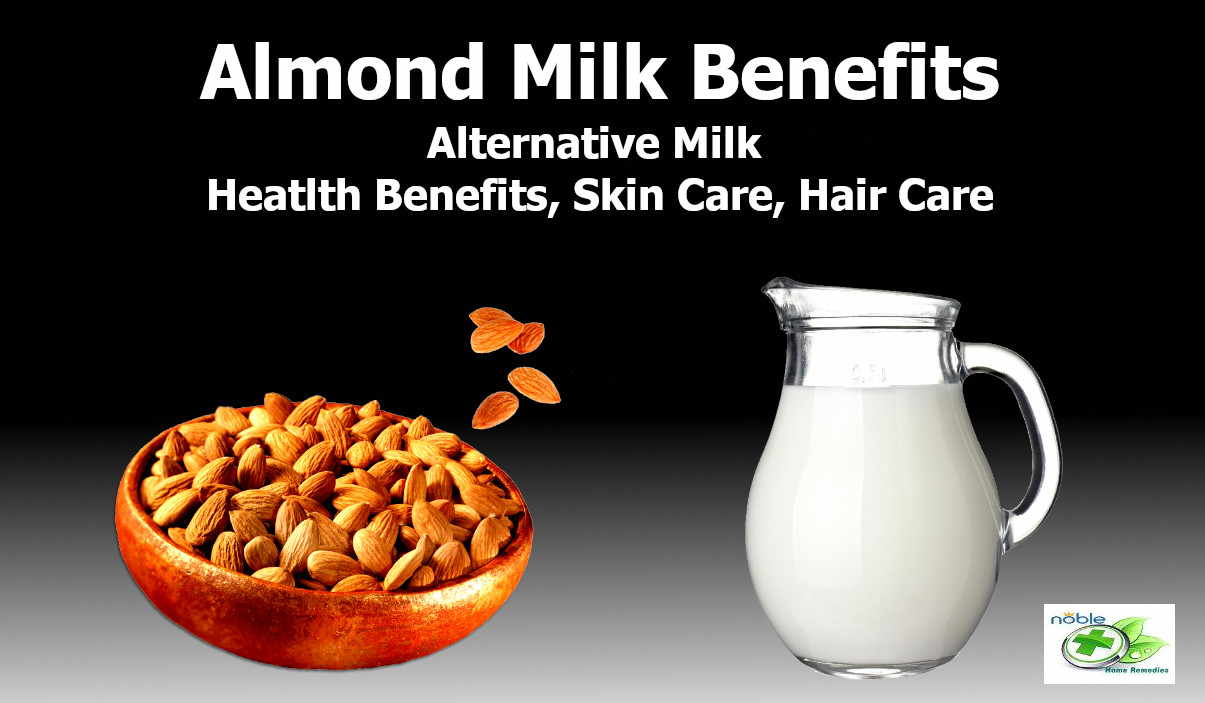This article will look at the causes of migraines and then the best natural remedies for migraines.
Migraine is primarily a headache disorder. The majority of people suffering from migraines are between 35 and 45 years of age. Most of them begin to suffer from migraines at puberty. Women are more likely to suffer from it by a factor of around 2:1. Typically because of hormonal influences. Migraine is recurrent and typically life-long.
Migraine attacks occur at a frequency of once a year to once a week in adults. It may occur less frequently in children. In children, attack duration tends to be shorter and abdominal symptoms are more prominent. In adults, it may last for hours to 2-3 days.
Table of Contents
Key Facts and Figures About Migraines
A migraine attack occurs approximately once in every 7 people around the world. It is 14.7% of the world’s population. Making it the third most common disease after dental caries and tension-type headaches.
More people suffer from migraines than from asthma, epilepsy, and diabetes combined. Globally, chronic migraine affects approximately 2% of the population.
Migraine among women is three times that of men, which has probably to do with hormones.
According to research, one million people in the general population have migraines daily. More than three-quarters suffer more than one migraine a month. Over half, experience severe impairment during attacks. In the UK, over 190,000 migraine attacks occur every day.
At least half of migraine sufferers go undiagnosed and untreated, and less than half seek medical attention for their problem.
What Causes Migraines?
There are many questions surrounding migraine headaches. According to the World Health Organization, across the globe, it is one of the most difficult health conditions.
WHO reasons that inflammatory substances are released by the brain during the activation of certain mechanisms deep in the brain. It results in pain around the nerves and blood vessels of the head.
The exact cause of migraines is unknown, but they’re thought to be the result of abnormal brain activity temporarily affecting nerve signals, chemicals, and blood vessels in the brain.
United Kingdom National Health Service – Migraine Cause
Symptoms of migraine headaches vary from person to person. Initially, people may experience flashes of light, hypersensitivity to light and sound, blind spots, vomiting, nausea, numbness in legs and arms, and tingling in legs and arms.
Some people also experience stick neck, food cravings, frequent yawning, constipation, and irritation before a migraine attack.
The cause of a migraine headache is unfortunately still unknown. However, it has been found that most people are affected due to hereditary.
A migraine headache is thought to be because of: –
- the complex condition where chemical changes happen in the brain.
- the central nervous disorder
- genetic predisposition
- abnormalities in brain chemicals and in nerves
Till today there is no known cure for migration according to the studies. However, there are natural remedies for migraine headaches. To get help and get faster relief. Also to reduce its frequency.
What Triggers Migraines?
Here is the list of migraine triggers include:
- Hormonal changes: Migraine attacks are common among women during their menstrual cycles. It is because of levels of estrogen hormonal changes, they are more vulnerable. This type of migraine usually occurs 2 days before your period begins to 3 days after. After menopause, many women find their migraines lessen, although in some cases migraines can be triggered or worsened by menopause.
- Emotional triggers: The emotional triggers that cause migraines are including:
- stress
- tension
- anxiety
- shock
- excitement, and
- depression.
- Physical triggers: The physical triggers are not limited to:
- tiredness
- poor-quality sleep
- shift work
- neck or shoulder tension
- poor posture
- jet lag
- intense workout or exercise and,
- low blood sugar
- Dietary triggers:
- missing meals or late meals
- alcohol
- dehydration
- caffeine products, such as coffee
- some chocolates and citrus fruits
- foods with the substance tyramine such as meats, smoked fish, pickled herrings, yeast extracts, and cheese. You should avoid cold food items because the tyramine levels in them may increase. Choose foods that are at room temperature.
- Environmental triggers:
- loud noises
- bright lights
- flickering screens from Tv or computers
- smoky environment
- changes in environmental temperature
- strong smells
- Medicines: The medicines such as contraceptive pills and sleeping tablets. Hormone replacement therapies also could trigger migraines.
10 Natural Remedies for Migraines
Here are the best natural remedies for migraines. These remedies can provide quick relief and reduce frequency. Unfortunately, there is no permanent cure for migraines.
1. Feverfew
As a natural remedy for migraine headaches, feverfew is commonly used for centuries. Parthenolide, a component of feverfew, helps to relax muscles and neutralizes prostaglandins that cause pain. A study in 1988 also suggests that the average attack number and severity decreased with feverfew usage.
How to use feverfew for migraines: Add dried feverfew and peppermint to a cup of hot water and steep for thirty minutes. Strain before drinking. This herbal tea helps relieve migraine headaches. Drink it several times a day.
2. Ginger
Ginger is reported to be effective in treating neurological disorders in several Ayurvedic and holistic traditional systems of medicine (Tibb systems). Because migraine is also a neurological disorder, ginger is effective in treating migraines.
Ginger acts as a blocker of prostaglandins and relaxes muscles and blood vessels in the brain. It is also a medicinal plant that treats other health conditions. These great qualities make ginger one of the best natural remedies for migraines. Ginger is not only helpful for migraine sufferers but also has many health benefits.
How to use ginger for migraines: Drink ginger tea several times a day to help relieve migraine headaches. You can also chew raw ginger roots after peeling them.
3. Apple Cider Vinegar
Apple cider vinegar may not provide definitive evidence that it can treat headaches and migraines. Though its benefits may decrease or prevent headache symptoms because of its positive effects on other parts of the body. The positive effects that may help to prevent migraine attacks are including:
- staying hydrated
- having enough sleep
- reduced stress levels
- helps stop smoking
- helps reduce alcohol use
- maintaining good posture
How to use apple cider vinegar for migraine: Add one tablespoon each of apple cider vinegar and honey to a glass of water. Mix it well and drink it. Drink daily, as indirect prevention of migraine attacks.
4. Peppermint
The herb peppermint is antispasmodic and anti-inflammatory, making it a good choice to calm nerves and ease headaches. In addition, studies have shown that the smell of peppermint helps relieve headaches.
How to use peppermint for migraines: Massage your temples with peppermint essential oil for about 30 minutes. Repeat a few times a day until your migraine headache is relieved. You can also reduce migraine headaches by drinking peppermint tea with a little honey.
5. Ice Pack
The treatment is popular for migraine headaches. It relieves the pain by numbing the area of tension caused by migraines.
In a 2006 study, 26 migraine patients were treated with cold therapy through gel caps. Before and after cold therapy, headache severity was measured using a visual analog scale. Patients who received cold therapy reported experiencing fewer headaches.
How to use Ice Pack for migraines: Wrap some ice cubes in a clean towel and place them over the forehead, temples, and back of the neck. Do this for about 15 minutes. Repeat as needed.
You can also use hot or cold compresses instead of ice cubes wrapped in a towel. Essential oils like lavender or peppermint can be added to the compresses for faster relief.
6. Chamomile
Drinking chamomile tea every day prevents migraine headaches by acting as an anti-inflammatory and antispasmodic. Chamomile tea is useful to keep migraines at bay.
In recent studies, the German chamomile herb Matricaria recutita has shown promising results for treating migraines. According to experts additional studies are needed to determine whether fresh German chamomile can reduce migraine attacks.
How to use chamomile for migraines: Take 3 teaspoons of dried chamomile flowers in a cup of boiling water. Let it brew for about three minutes. Then add some freshly squeezed lemon juice and honey. Strain the tea before drinking. This tea will relieve migraine headaches. Alternatively, you can use chamomile tea with meadowsweet and horehound to make tea. Again strain the tea before drinking it.
7. Cayenne Pepper
The main component in cayenne pepper is capsaicin, making it a popular treatment for aches and pains, and inflammation. This inhibits a substance in our body called Substance P, which affects pain perception. Capsaicin, on the other hand, depletes substance P, which causes us to feel pain. People with headaches who applied capsaicin topically to their nasal passages reported a significant reduction in headache severity.
How to use cayenne pepper for migraines: First dilute a 1/4 teaspoon of cayenne powder in a cup of water. Then stir it with a cotton swab so that the cayenne covers the swab. Apply to each nostril until you feel the heat. Often, this is effective in reducing headache pain.
8. Massage
Your brain responds more effectively to massage by decreasing pain signals. It also increases serotonin, which will relieve a headache. In a study in 2006 where 47 migraine sufferers were assigned massage for 13 weeks on a weekly basis. Researchers found that massage improved migraine frequency and quality of sleep among participants.
Chiropractic care is another method that provides pain relief including migraine headaches.
How to massage for migraines: Get someone to massage your head from behind as you lie on the bed. Massage the head in a circular motion with the forefingers. Press harder on the pressure points such as the sides of the forehead, the middle of the forehead, and the base of the skull. For faster pain relief, you can also massage with sesame oil or bay leaf essential oil.
Make a quick mixture of 2 teaspoons of sesame oil (heat it slightly), ½ teaspoon of cinnamon, and cardamom powder. Apply the mixture to the forehead and gently massage the forehead. After about a few hours you could wash it off.
9. Apple
You can eat apples for a variety of health benefits, including relief from headaches and migraines. Some studies suggest you can get relief from migraine pain simply by smelling the apple. Eat raw apples as often as you like to receive relief.
10. Coffee
Coffee contains caffeine, which inhibits the blood receptors that cause migraines. So, drinking coffee helps to get relief from migraines. But be aware that some people’s sudden caffeine withdrawal may trigger migraine attacks. Excessive caffeine can also make headaches.
How to use coffee for migraines: Drink a few cups of coffee a day to get relief.
Drink a few cups of coffee a day to get relief. Be cautioned that in some people caffeine itself can trigger a migraine. Excessive caffeine can lead to making headaches worsened as well.
Takeaway
As migraine sufferers, you know the symptoms can be difficult to manage. It may be difficult to attend work or take part in activities you love.
Get relief by trying the above natural remedies for migraines.
Even when trying natural remedies, migraine sufferers still need to work with a doctor or migraine specialist to find a treatment regimen that works.
13 Sources
Noble Home Remedies relies on peer-reviewed studies, academic research institutions, and medical associations for accuracy and reliability while avoiding tertiary references. Our editorial policy provides more information about how we ensure our content is accurate and up-to-date.
- Migraine caused by UK National Health Services – https://www.nhs.uk/conditions/migraine/causes/
- Headache disorders by WHO – https://www.who.int/news-room/fact-sheets/detail/headache-disorders
- Migraine: the seventh disabler by The Journal of Headache and Pain – https://www.ncbi.nlm.nih.gov/pmc/articles/PMC3606966/
- Headache Disorders by All-Party Parliamentary Group on Primary Headache Disorders – https://www.migrainetrust.org/wp-content/uploads/2015/12/2010Mar-APPGPHD_REPORT_Headache_Disorders-NotRespNotReso.pdf
- The global prevalence of chronic migraine by PubMed – https://pubmed.ncbi.nlm.nih.gov/19614702/
- The prevalence and disability burden of adult migraine in England – https://pubmed.ncbi.nlm.nih.gov/12950377/
- Headache disorders: How common are headaches? by WHO – https://www.who.int/news-room/q-a-detail/headache-disorders-how-common-are-headaches
- A study based on the records of a community pharmaceutical department – https://pubmed.ncbi.nlm.nih.gov/17681022/
- Ginger (Zingiber Officinale) in migraine headache – https://www.sciencedirect.com/science/article/abs/pii/037887419090037T
- Vinegar: Medicinal Uses and Antiglycemic Effect – https://www.ncbi.nlm.nih.gov/pmc/articles/PMC1785201/
- Herbal treatments for migraine: A systematic review of randomized‐controlled studies – https://onlinelibrary.wiley.com/doi/abs/10.1002/ptr.6701
- Migraine Headaches: Feverfew or Chamomile Leaves? – https://citeseerx.ist.psu.edu/viewdoc/download?doi=10.1.1.742.1264&rep=rep1&type=pdf
- The Ambiguous Role of Caffeine in Migraine Headache: From Trigger to Treatment – https://www.mdpi.com/2072-6643/12/8/2259











Comments are closed.